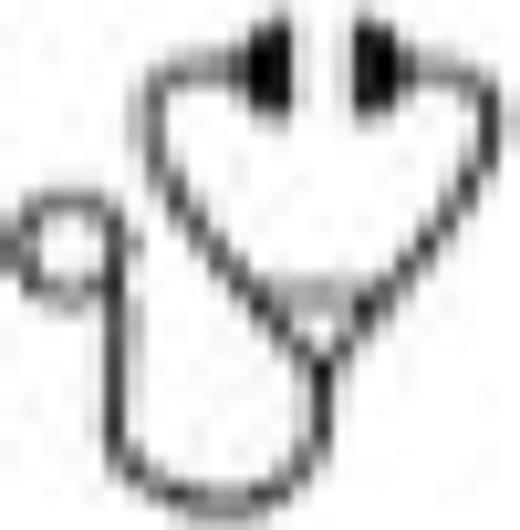Abstract

Introduction
Certain patients with antibody-mediated autoimmune disease exhibit poor responses to conventional immunosuppression. Proteasome inhibitors (PI) have been prospectively evaluated in humoral graft rejection, where rapid alloantibody depletion occurs in the context of combined immunosuppression. In addition to killing antibody-producing cells, PIs deplete autoreactive T-cells, suppress inflammatory NFkB signaling and modulate MHC class I antigen presentation. The durability of rituximab-based B-cell depletion may be abrogated by promotion of long-lived autoreactive (CD20 neg) plasma cell development. Therefore there is a strong rational for utilising PIs in antibody mediated autoimmune disease. Based on our initial experience re-purposing bortezomib (BTZ) to deplete ADAMTS-13 antibodies in thrombotic thrombocytopenic purpura (TTP) (Shortt et al NEJM 2013; 69: 90-2.), we have utilized off-label BTZ in cases of severe refractory antibody-mediated hematological disease via a compassionate access program. We report the first case-series of BTZ use in this broader patient group.
Patients & Methods
Outcome data were collected for all patients treated between 2012 and 2015 with off-label BTZ salvage for autoantibody-mediated hematological disease across a combined health-care network in the Australian state of Victoria (catchment area >1.5 million patients; 3 major academic centers). Eligible patients were refractory to standard of care and at risk of severe morbidity/mortality from underlying disease or immunosuppression. All patients demonstrated on-going autoantibody production despite rituximab-based B-cell depletion. We sought to correlate biological responses (e.g. reductions in autoantibody titer) with clinical efficacy (e.g. remission rates and capacity to wean concurrent immunosuppression) and to document BTZ toxicities. Compassionate BTZ access was subject to institutional drug and therapeutic committee review and Australian Therapeutic Goods Administration notification. Routine antiviral prophylaxis was administered.
Results:
Treatment episodes (n=8) included TTP (n=3), warm autoimmune hemolytic anemia (AIHA) (n=3), cold AIHA (n=1) and an acquired FVIII inhibitor (n=1) in 7 patients (median age 53 years, range 34-80; M/F 4:3). Patients had received a median of 3.5 prior lines of therapy (range: 2-6) and all were rituximab exposed. BTZ was predominantly administered at 1.3mg/m2; D1, 4, 8, 11 q21d, with subsequent dose modification to weekly where repeated cycles were required. Initial IV therapy was preferred in TTP patients, to maximize exposure between exchanges; where recurrent cycles were administered all patients transitioned to subcutaneous administration to avoid neurotoxicity. With a median follow-up of 10 months (censored June 2015; range: 4-35 months), the overall response rate was 75%, including 50% durable complete remissions and 25% partial remission with reductions in transfusion requirements and baseline immunosuppression. Biological responses correlated with reductions in autoantibody titer. Most patients demonstrated an immediate response within 1 cycle (median cycles delivered 1.5; range: 1-6). BTZ was generally well tolerated with grade 4 hepatotoxicity observed in one patient in the context of high alcohol intake. No infective complications or neuropathy were observed.
| Case . | Age . | M/F . | Disease . | Prior Lines of Treatment . | Cycles . | Response . | Duration of response . |
|---|---|---|---|---|---|---|---|
| 1 | 70 | M | AIHA (warm) | 3 | 1 | NR | 0 |
| 2a | 53 | F | TTP | 4 | 1 | CR | 7m |
| 2b | 54 | F | TTP | 2 | 1 | CR | 25m |
| 3 | 64 | F | AIHA (cold) | 5 | 6 | PR | 5m |
| 4 | 49 | F | TTP | 2 | 1 | CR | 32m |
| 5 | 34 | M | Hemophilia A | 3 | 4 | CR | 4m |
| 6 | 47 | M | AIHA (warm) | 5 | 2 | PR | 2m |
| 7 | 80 | M | AIHA (warm) | 6 | 2 | NR | 0 |
| Case . | Age . | M/F . | Disease . | Prior Lines of Treatment . | Cycles . | Response . | Duration of response . |
|---|---|---|---|---|---|---|---|
| 1 | 70 | M | AIHA (warm) | 3 | 1 | NR | 0 |
| 2a | 53 | F | TTP | 4 | 1 | CR | 7m |
| 2b | 54 | F | TTP | 2 | 1 | CR | 25m |
| 3 | 64 | F | AIHA (cold) | 5 | 6 | PR | 5m |
| 4 | 49 | F | TTP | 2 | 1 | CR | 32m |
| 5 | 34 | M | Hemophilia A | 3 | 4 | CR | 4m |
| 6 | 47 | M | AIHA (warm) | 5 | 2 | PR | 2m |
| 7 | 80 | M | AIHA (warm) | 6 | 2 | NR | 0 |
NR - no response; CR - complete response; PR - partial response (reduction in immunosuppression or disease activity)
Conclusions:
BTZ rapidly downregulates autoantibodies, correlating with a high response rate in relapsed/refractory autoimmune hematological disease with an acceptable/expected toxicity profile. This case series, taken together with emerging case reports of efficacy provide 'proof of concept' for the utility of PI in antibody mediated autoimmune disease. A prospective clinical trial protocol is in development.
Off Label Use: The drug to be discussed is bortezomib and its use in managing refractory autoimmune haematological disorders (off label use). Catalano:Celgene, Roche, Gilead: Honoraria. Opat:Janssen Pharmaceuticals: Other: Provision of subsidized medications only. Shortt:Janssen Pharmaceuticals: Other: Provision of subsidized medications only.
Author notes
Asterisk with author names denotes non-ASH members.

This icon denotes a clinically relevant abstract

This feature is available to Subscribers Only
Sign In or Create an Account Close Modal